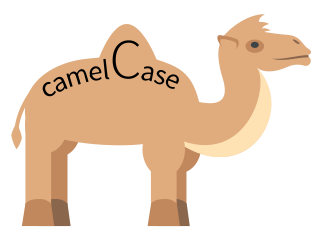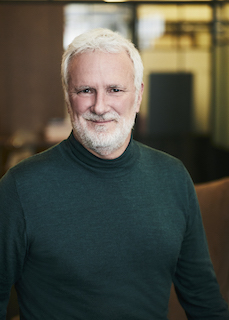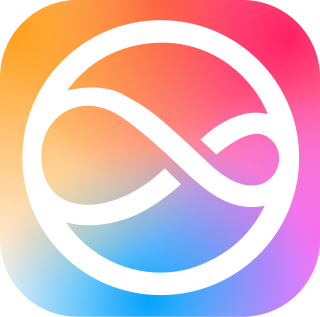
Computer science is the study of computation, information, and automation. Computer science spans theoretical disciplines to applied disciplines.

Camel case is the practice of writing phrases without spaces or punctuation and with capitalized words. The format indicates the first word starting with either case, then the following words having an initial uppercase letter. Common examples include YouTube, PowerPoint, HarperCollins, FedEx, iPhone, eBay, and LaGuardia. Camel case is often used as a naming convention in computer programming. It is also sometimes used in online usernames such as JohnSmith, and to make multi-word domain names more legible, for example in promoting EasyWidgetCompany.com. In fact, WikiWikiWeb, an ancestor of Wikipedia, is written in camel case.

Donald Ervin Knuth is an American computer scientist and mathematician. He is a professor emeritus at Stanford University. He is the 1974 recipient of the ACM Turing Award, informally considered the Nobel Prize of computer science. Knuth has been called the "father of the analysis of algorithms".
A fourth-generation programming language (4GL) is a high-level computer programming language that belongs to a class of languages envisioned as an advancement upon third-generation programming languages (3GL). Each of the programming language generations aims to provide a higher level of abstraction of the internal computer hardware details, making the language more programmer-friendly, powerful, and versatile. While the definition of 4GL has changed over time, it can be typified by operating more with large collections of information at once rather than focusing on just bits and bytes. Languages claimed to be 4GL may include support for database management, report generation, mathematical optimization, GUI development, or web development. Some researchers state that 4GLs are a subset of domain-specific languages.

MATLAB is a proprietary multi-paradigm programming language and numeric computing environment developed by MathWorks. MATLAB allows matrix manipulations, plotting of functions and data, implementation of algorithms, creation of user interfaces, and interfacing with programs written in other languages.

The Mizar system consists of a formal language for writing mathematical definitions and proofs, a proof assistant, which is able to mechanically check proofs written in this language, and a library of formalized mathematics, which can be used in the proof of new theorems. The system is maintained and developed by the Mizar Project, formerly under the direction of its founder Andrzej Trybulec.

Guido van Rossum is a Dutch programmer. He is the creator of the Python programming language, for which he was the "benevolent dictator for life" (BDFL) until he stepped down from the position on 12 July 2018. He remained a member of the Python Steering Council through 2019, and withdrew from nominations for the 2020 election.
Medical Information Technology, Inc., shortened to Meditech, is a privately held Massachusetts-based software and service company that develops and sells information systems for health care organizations.

Arthur Whitney is a Canadian computer scientist most notable for developing three programming languages inspired by APL: A+, k, and q, and for co-founding the U.S. companies Kx Systems and Shakti Software.

iOS is a mobile operating system developed by Apple exclusively for its devices. It was unveiled in January 2007 for the first-generation iPhone, which launched in June 2007. Major versions of iOS are released annually; the current stable version, iOS 18, was released to the public on September 16, 2024.

Irish, also known as Irish Gaelic or simply Gaelic, is a Celtic language of the Indo-European language family. It is a member of the Goidelic language group of the Insular Celtic sub branch of the family and is indigenous to the island of Ireland. It was the majority of the population's first language until the 19th century, when English gradually became dominant, particularly in the last decades of the century, in what is sometimes characterised as a result of linguistic imperialism.
Evi is a technology company in Cambridge, England, founded by William Tunstall-Pedoe, which specialises in knowledge base and semantic search engine software. Its first product was an answer engine that aimed to directly answer questions on any subject posed in plain English text, which is accomplished using a database of discrete facts. The True Knowledge Answer engine was launched for private beta testing and development on 7 November 2007.

Acadamh na hOllscolaíochta Gaeilge is a third level educational and research institution headquartered in Galway, Ireland. It was established as part of the National University of Ireland - Galway in 2004, to further the development Irish-medium education. The academy works in co-operation with faculties, departments and other university offices to develop the range and number of programmes that are provided through the medium of Irish on campus and in the academy's Gaeltacht centres.

Siri is a digital assistant purchased, developed, and popularized by Apple Inc., which included it in the iOS, iPadOS, watchOS, macOS, tvOS, audioOS, and visionOS operating systems. It uses voice queries, gesture based control, focus-tracking and a natural-language user interface to answer questions, make recommendations, and perform actions by delegating requests to a set of Internet services. With continued use, it adapts to users' individual language usages, searches, and preferences, returning individualized results.

Kiwix is a free and open-source offline web browser created by Emmanuel Engelhart and Renaud Gaudin in 2007. It was first launched to allow offline access to Wikipedia, but has since expanded to include other projects from the Wikimedia Foundation, public domain texts from Project Gutenberg, many of the Stack Exchange sites, and many other resources. Available in more than 100 languages, Kiwix has been included in several high-profile projects, from smuggling operations in North Korea to Google Impact Challenge's recipient Bibliothèques Sans Frontières.

Indigenous Tweets is a website that records minority language Twitter messages to help indigenous speakers contact each other. It was founded in March 2011 by Kevin Scannell, who does research in computational linguistics in the Department of Mathematics and Computer Science at Saint Louis University in St. Louis, Missouri, United States. The website's purpose is to enable minority language speakers to communicate on the Internet.

Cortana was a virtual assistant developed by Microsoft that used the Bing search engine to perform tasks such as setting reminders and answering questions for users.
Ted Hurley is an Irish mathematician and retired university professor specialising in algebra, specifically in group theory, group rings, cryptography, coding theory and computer algebra. In 1976, Hurley was a founding member of the Irish Mathematical Society, and he served as its inaugural secretary (1977-1979).














